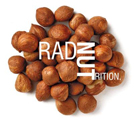High levels of LDL cholesterol have been linked to increased risk of cardiovascular disease by promoting atherosclerosis. In atherosclerosis, thick wax-like plaque can harden and narrow blood vessel walls which can limit the flow of blood and increase risks of heart attack, stroke or death.
Triglycerides are another type of fat found in the blood. When we consume refined carbohydrates, sugar, fats, or alcohol in excess, they can be converted to triglycerides and stored in the body as fat.
HDL is known as “good cholesterol” because it helps remove excess cholesterol from arteries and takes it back to the liver where it can be broken down.
Causes of abnormal cholesterol can often be related to low levels of physical activity, poor nutrition, excess alcohol, smoking, and genetics. Beginning with these easy lifestyle changes can help decrease your risk of heart complications in the future:
- Increase your omega-3. Our food supply is rich in omega-6 fats which are commonly found in soybean oil, corn oil, sesame oil, shortenings, and sunflower oil. Some studies suggest that high intake of omega-6 combined with low intake of omega-3 may promote inflammation in the body. Populations such as the Inuit, who have a higher intake of Omega-3 fat appear to have low rates of heart disease.
Increasing our omega-3 fat of EPA and DHA from salmon, sardines, tuna, mackerel, herring, trout, and algae can help decrease inflammation, reduce triglycerides, improve dilation of blood vessels, and improve blood pressure. Those who are vegetarian can include food sources of the omega-3 fat ALA from flax, chia, walnuts, hemp and canola oil, or consider a daily 500mg EPA + DHA supplement (but these may not be as beneficial as the EPA and DHA we receive when we eat fatty fish twice a week).
- Know where your sugar is coming from. When we consume excess quantities of juice, pop, white bread, white rice, baked goods and desserts these not only increase our blood sugar, but can also increase our cholesterol. Replacing pop and juice with water or lower-fat milk, and switching low fiber carbohydrates for whole grains will help decrease triglycerides and may help manage weight.
- Think Mediterranean. Studies suggest that those who consume a diet rich in fish, low fat dairy, vegetables, fruit, whole grains, nuts, seeds, poultry, olive oil, and legumes have a lower risk of heart attack or stroke.
- Fiber is your friend. If you know the RADNUT team you know we love fiber. We need at least 25-30g of fiber each day.
Whole grain bread, barley, oatmeal, quinoa, beans, lentils, peas, vegetables, nuts and seeds can help lower LDL cholesterol by possibly decreasing it’s absorption in the body. Additionally, psyllium husk, a source of natural soluble fiber, can help reduce LDL when 5-10g are taken daily; try mixing 2-3tsp into oats, smoothies, soups, or batter of baked goods. Beta-glucan, a component of fiber often found in barley and oats has also shown heart health benefits. It is important to note that without adequate fluids, if fiber is increased in the diet, bloating, gas or constipation can occur.
- Move. Regular physically activity in any form can decrease triglycerides, increase HDL, and improve blood pressure. You don’t need to be at a gym to gain the benefits of activity. Adding in small amounts of activity during the work day, riding a bike, walking, attending a fitness class with family or a friend are just a few ways you could get started. Not only will your heart health improve but your blood sugar, balance, muscle strength, mood, and self-confidence will likely be positively affected.
- Soy Protein. Some studies suggest that lower rates of heart disease may be seen in Asian populations due to higher consumption of soy. Substituting some animal protein with soy protein such as edamame, roasted soy nuts, or tofu, may provide cholesterol-lowering benefits due to their lower saturated fat, higher unsaturated fat, and higher fiber content. Concentrated soy isoflavone supplements are not recommended since it is unclear if they have any heart health benefits and their safety has not been determined.
- Get help to stop smoking. Smoking promotes damage, hardening and narrowing of blood vessels which increases risks of atherosclerosis. Quitting smoking can result in increased HDL, decreased blood pressure, decreased risks of heart attack or stroke, and can help prolong your life by years.
References
http://www.ncbi.nlm.nih.gov/pubmed/25894796
http://www.nhlbi.nih.gov/health/health-topics/topics/atherosclerosis
http://www.uptodate.com/contents/lipid-lowering-with-diet-or-dietary-supplements?source=see_link
http://atvb.ahajournals.org/content/26/8/1689.full
http://www.albertahealthservices.ca/hp/if-hp-ed-cdm-ns-5-4-1-heart-healthy.pdf
http://my.clevelandclinic.org/services/heart/prevention/risk-factors/cholesterol/triglycerides
http://www.nhlbi.nih.gov/health/health-topics/topics/ smo
http://my.clevelandclinic.org/services/heart/prevention/ risk-factors/smoking
http://www.lesliebeck.com/articles/2015/04/07/what_to_eat_to_lower_your_cholesterol
https://www.nhlbi.nih.gov/health/health-topics/topics/ phys/benefits
Image from https://diabetessource.ca/abcdes-diabetes-c-cholesterol/
